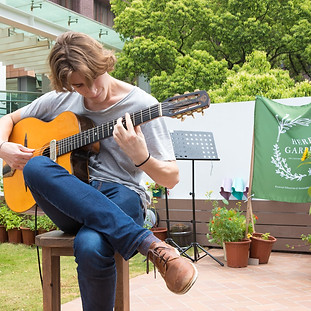

Background
Since 2013, CEDARS-GE and the former Sustainability Office have jointly established the HKU Rooftop Farm and the Herb Garden. The Rooftop Farm was also a demonstration project of Mr. Mathew Pryor’s, Associate Professor (Teaching), Division of Landscape Architecture, HKU, Edible Roof Initiative (https://www.arch.hku.hk/research_project/the-edible-roof-initiative). By turning unused campus space, or space originally designated for ornamental landscaping into edible spaces, this initiative has demonstrated the holistic potentials of urban edible spaces, not only in producing food, but also in generating social values, including environmental awareness, sustainable living and improved mental health for the community.
Throughout the years, members from the international community, including the Minister for Rural Affairs of Sweden, Korean civil servants from the Agricultural Research and Extension Services and members of the International Sustainable Campus Network have visited and learned from our endeavours. The Rooftop Farm has also been featured in international and local media including BBC, CNN, Hokkaido Broadcasting Company, TVB Pearl, HK Cable TV, SCMP, etc.
With the establishment of organic farm and herb garden, HKU students and staff have the opportunities to participate in farming workshops, learning organic and sustainable farming skills on campus. Organic fresh harvests from the farm and the herb garden has also benefitted numerous HKU as well as community members. Other subsequent edible spaces projects have been initiated around campus based on our experiences, such as the farm at New College.
Vision

HKU Holistic Urban Farming endeavours to re-connect people with nature, and to explore and promote the positiveimpacts of sustainable urban farming and gardening activitieson the wellbeing of people and the communities.
Missions

-
Promoting Farming and Food Education
-
We promote and practise sustainable organic farming that is good for our health and the environment
-
We adopt the permaculture ethics and design principles at our spaces. The permaculture ethics include i) care for the earth, ii) care for people and iii) return of surplus
-
We utilise our campus space as a testing ground for urban farming and innovative techniques to offer solutions for the potential food crisis due to rising global population and climate change
-
By learning to grow food, we hope to raise awareness on the safety, health and nutritional factors of the food we eat
-
When we practise farming and gardening, we are more connected and grateful to nature, thus more conscious of the environmental impact of our choices and lifestyles
-
We encourage our community to transition to a more plant-based diet for health and for our environment

2. Community Building for a Sustainable Future
-
We cook and share our harvest with the community, especially to those in need
-
We support local sustainable agriculture by providing platforms, such as Farmers’ Market and gatherings, to connect local farmers (food producers) and our community (consumers)
-
Through growing, harvesting, preparing and sharing food, we hope to nurture a community, regardless of our disciplines and origins, that shares the same concern on health, environment and our future
-
We also support and promote green living lifestyles and choices in HKU. GE has collaborated with the well-known “Green Monday” since 2013 as their first university partner to promote plant-based diets.
-
We see the campus as a living lab, we can test our ways to build a sustainable community that can be applied to the society at large

3. Mindful Gardening to Cultivate Wellbeing
-
Through spending quality time with plants and insects, sun and rain, soil and water, as well as people in the community, we hope we can all find a sense of belonging and togetherness and enhance our physical and mental wellbeing, especially during the Pandemic. Additional funding was received to enhance the programme in this aspect.
-
We work to make the edible spaces a relaxing and nourishing place for people and all living beings to learn, share and enjoy together. The infusion of arts and cultural activities such as music, poetry, film and so on further connect people with more depth and dimensions.